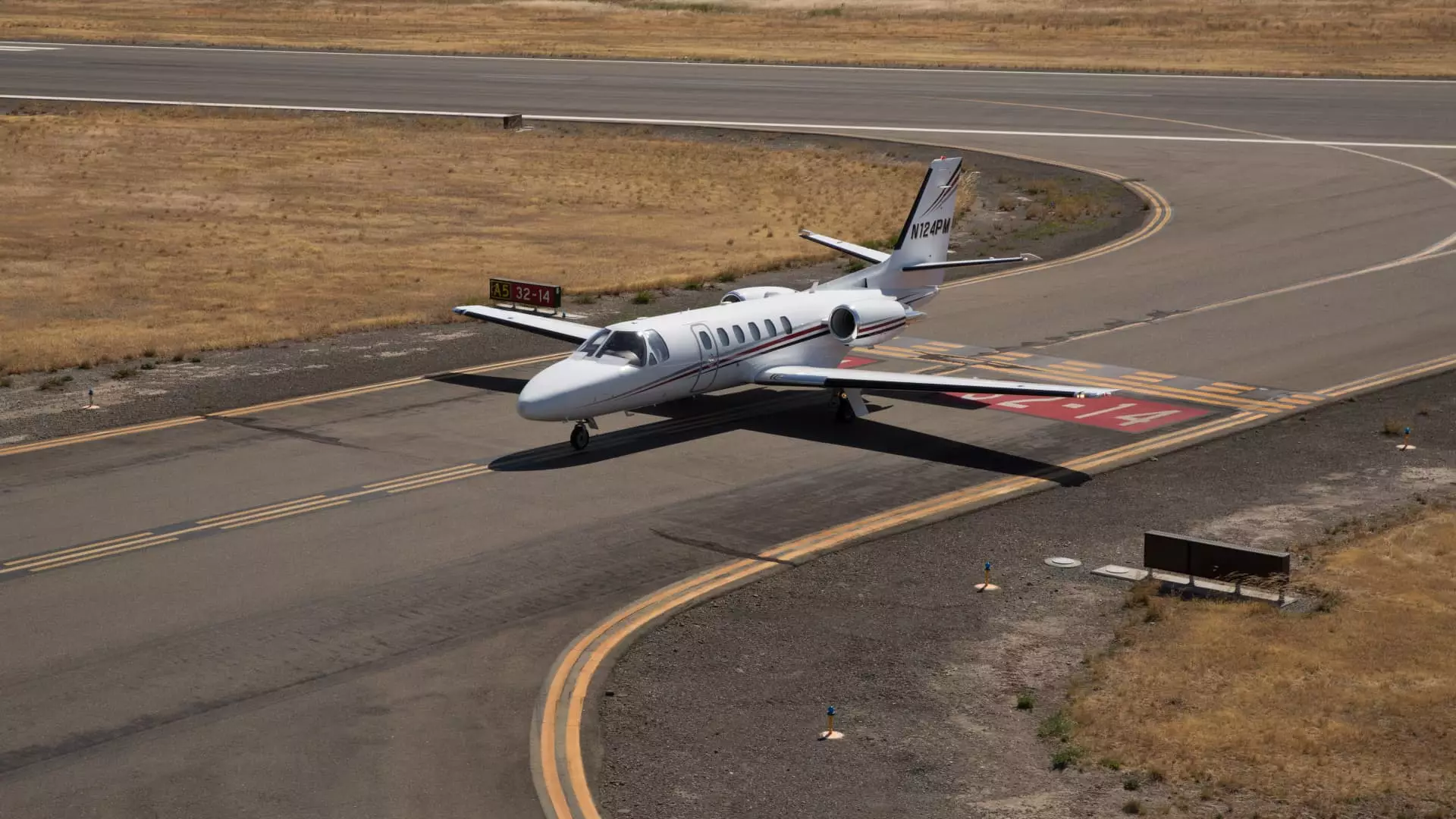The commercial air travel market is currently facing unprecedented turbulence, a situation exacerbated by plummeting consumer confidence. The latest findings from Barclays Sport a disturbing trend among affluent travelers, suggesting that even those with deep pockets are reconsidering their purchases. A striking 49% decline in customer interest for business jets has been reported, revealing the grim sentiment shared among industry players. The survey’s implications, drawn from insights gathered between April 9 and 15, indicate a significant downturn that has left many analysts, including Barclays’ own David Strauss, stunned by the depth of this decline.
With a composite score dropping from 52 to a disheartening 40, the survey reflects the fragility of the business jet market and the broader implications for manufacturers. This sentiment is not simply a blip on the radar; it represents a systemic issue affecting investment in air travel. As travelers pivot towards alternatives and hold off on high-value purchases like business jets, there is an urgent need for industry reflection.
Understanding the Metrics
Barclays employs various metrics in its survey—but the correlation between customer feedback and the overall health of the market is crystal clear. Indicators such as the 12-month outlook and pricing trends paint a concerning picture, with all metrics besides inventory levels declining. The combination of a low composite score and a significant decline in demand has implications not just for individual manufacturers but for the entire industry ecosystem surrounding air travel. This scenario exemplifies the interconnectedness of consumer sentiment with broader economic dynamics, where fear of tariffs and geopolitical tensions weigh heavily on purchasing decisions.
Consumers are increasingly wary of investments that can become liabilities—business jets being a prime example. The anticipated negative impacts of tariffs loom over prospective buyers, stifling the desire to invest in new aircraft. Strikingly, it’s the fear of global economic instability that is casting a long shadow over the potential return to normalcy in the industry.
The Tariff Factor
The survey reveals that economic policies, particularly tariffs, are playing a significant role in constricting market demand. An overwhelming 93% of respondents express that tariffs will adversely impact the demand for new aircraft, indicating a substantial loss of faith in the government’s ability to navigate international trade complexities. The negative projection is further compounded by apprehensions surrounding the operational impact on businesses that depend on such high-value assets.
The pessimism surrounding the market is not just limited to new jets; the sentiment extends to used jets, where 67% of respondents expect demand to soften either significantly or moderately. This paints a dire picture for manufacturers and stakeholders alike, who are left contemplating how to remain profitable in an increasingly adverse environment.
Potential Legislative Lifelines
Even as the dark clouds gather, there may be rays of hope on the horizon. Legislative movements within the House and Senate could provide a crucial lifeline as discussions surface around extending the Tax Cuts and Jobs Act (TCJA). The original TCJA provisions allowed for immediate deductibility of equipment costs, a boon for businesses looking to invest. Should lawmakers rally behind these provisions—a scenario that seems plausible—there could be a significant resurgence in interest for business jet purchases.
Moreover, the possibility of retroactive deductions is not just an accounting boon; it could instill greater confidence among buyers, prompting them to reconsider their stance. In a market that thrives on optimism and capital investment, legislative support could offer the air travel sector a much-needed jolt.
The Road Ahead
While the outlook remains grim, it is imperative for stakeholders across the industry to remain resilient and proactive in addressing these challenges. The nexus of consumer confidence, geopolitical influences, and legislative action will ultimately determine the future trajectory of business jet sales. As industry leaders navigate this storm, it becomes increasingly evident that a collective effort is necessary to reignite interest and restore faith in the air travel sector. Such a recovery will not merely be about sales; it will require a reevaluation of how the market operates amidst evolving economic landscapes.

